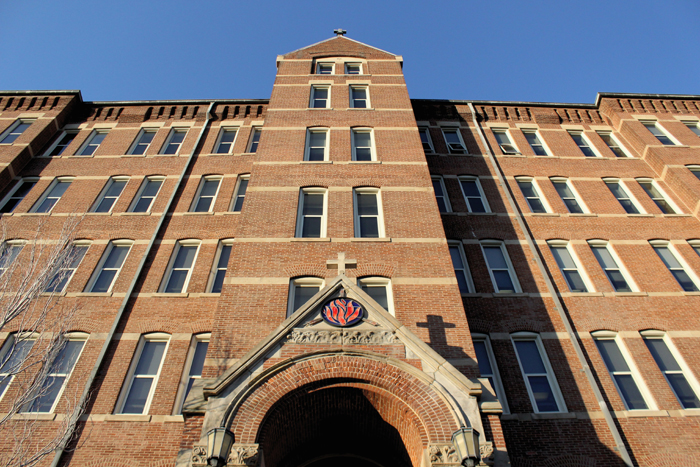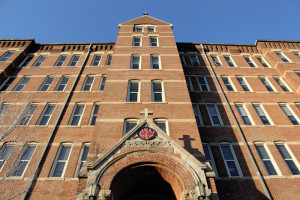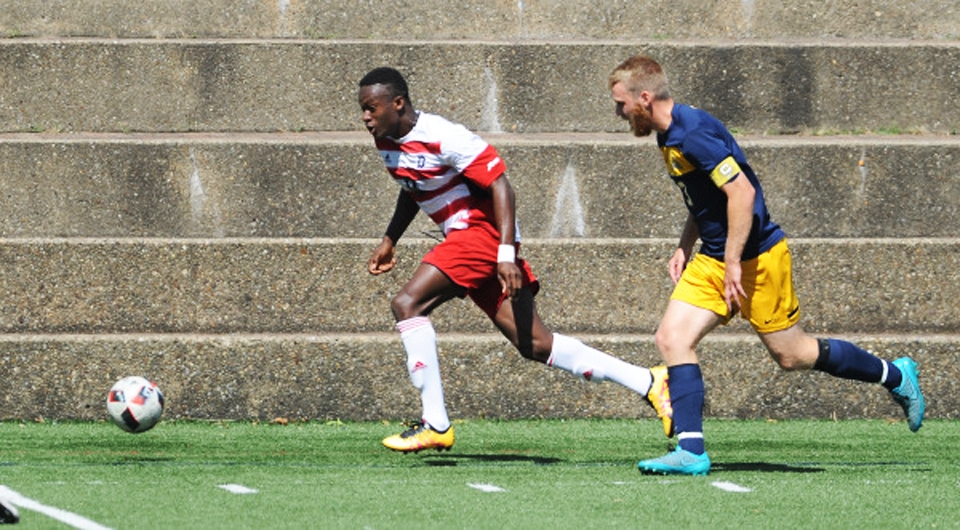

By Kaye Burnet | The Duquesne Duke
Duquesne’s endowment has roughly doubled in value in the last five years, with an increase of more than $26.6 million in the last year alone.
At $262 million, Duquesne’s endowment is larger than 70 percent of other colleges and universities across the country, according to Matt Frist, associate vice president of finance and business. Duquesne has the 265th highest endowment fund out of 851 schools.
Alumni and other donors sometimes give large sums of money to schools for specific purposes, which are compiled into a general endowment fund. The school invests the money and only the interest on the investments is spent, while the sum itself remains intact, Frist said. Endowments come with strict spending restrictions. For example, if money is donated toward a need-based tuition scholarship, the school cannot use it to pay faculty.
Duquesne’s endowment fund consists of more than 700 separate and specific donations, each with their own spending restrictions, Frist said.
“Nearly 40 percent of the University’s endowment fund supports student scholarships,” Frist said. “Other common restrictions include endowed faculty chairs, endowed funds that support the library and maintenance funds for buildings and labs across campus.”
Duquesne invests the money in a variety of stocks and bonds. Most of the donations come from alumni, according to Frist.
The recent growth in Duquesne’s endowment comes from general improvements in the stock market and a rigorous donation campaign, led by the University’s department of advancement, according to department Vice President John Plante.
The department completed a $164 million campaign in 2011, which included pledges and delayed donations that will trickle in over the next few years, Plante said.
From 2007 to 2009, the endowment shrunk by more than $50 million when the housing market collapsed and the recession began. Now the value has more than recovered, largely because Duquesne chose not to “cash out” when the market was struggling, Frist said.
“We chose instead to ride it out, because we said we’re in this for the long-term,” Frist said.
Frist said careful investing is key to maintaining and growing the value of Duquesne’s endowment.
“The original gift value has to be retained forever,” Frist said. “So in theory, if managed properly, that gift is going to support a specific activity today and also in the future. That gift will grow over time, and if it’s managed properly it’s going to benefit future generations of Duquesne students and scholars at the same level … 100 years from now.”
Donors can give a minimum gift of $25,000 to create a “resource fund,” which gives qualifying students stipend money for books and other school necessities. The largest donation Duquesne received was $12.5 million in 2011 from the William Dietrich estate. Dietrich was an executive in the steel industry who donated all of his estate to philanthropies, including Pittsburgh universities.
Other local endowments include the University of Pittsburgh, $3.49 billion; Chatham University, $97 million; Penn State University, $3.445 billion; and Carnegie Mellon University, $1.59 billion.




